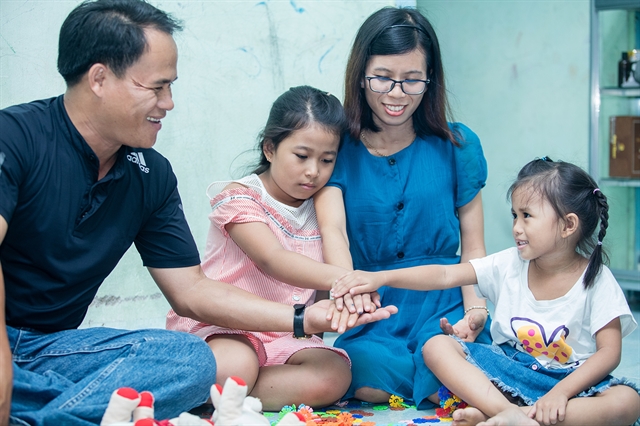 Society
Society

A new programme on gender issues has been launched by the United Nations Population Fund (UNFPA) for three years from 2020 to 2022, in partnership with the Government of Norway.

|
| A happy family with two daughters in Lạc Sơn District, the northern province of Hòa Bình. — Photo courtesy of the UNFPA |
HÀ NỘI — A new programme on gender issues has been launched by the United Nations Population Fund (UNFPA) for three years from 2020 to 2022, in partnership with the Government of Norway.
The programme “Addressing gender biased sex selection and related harmful practices in Việt Nam” will be co-implemented by the Ministry of Labour, Invalids and Social Affairs (MoLISA), the General Office for Population and Family Planning (GOPFP) under the Ministry of Health (MoH) and other partners.
It aims at supporting the ongoing Government’s efforts to fully implement approved legal and policy frameworks to end Gender Biased Sex Selection (GBSS) and includes campaigns through innovative approaches to change social norms and practices which reinforce son preference and the low value of girls, strengthening of the capacities of the media, implementation of the fatherhood programme, and streamlining of the country’s coordination mechanisms for GBSS.
Grethe Lochen, Norwegian Ambassador in Việt Nam, said: "Strengthening and defending global norms on practices and the rights of girls and women, including work against son preference, is a priority for Norway.”
“I am very pleased that in Việt Nam, UNFPA with the financial support of Norway, is taking the lead on addressing gender biased sex selection in close cooperation with the Government of Việt Nam,” she said.
The skewed sex ratio at birth (SRB) in Việt Nam was first identified in 2004, and since 2005, the imbalance towards more boys has rapidly increased and reached 111.5 boys per 100 girls in 2019 as indicated in the 2019 Census.
Nguyễn Doãn Tú, director general of the GOPFP, said: “One of the goals of the Việt Nam Population Strategy to 2030 is to bring the sex ratio at birth to the natural balance. Strengthening gender equality, empowering women and girls, promoting advocacy and communications, raising all people's awareness, and promoting greater participation from men and boys are key solutions to address GBSS.”
Naomi Kitahara, UNFPA representative in Việt Nam, said: “Việt Nam is making progress, but the progress must be accelerated within the context of the Decade of Action for Sustainable Development Goals.”
“With this new programme, we will support the Government of Việt Nam and civil society to speed up the process of change, towards a modern and progressive Việt Nam where women and girls have the same opportunities to succeed in society as men and boys do, and where we value our girls as much as we value our boys,” she said. — VNS




